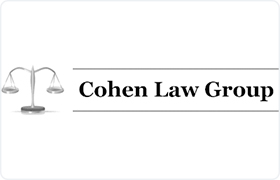New Town Real Estate Other Lawyer, Massachusetts
Sponsored Law Firm
-
 x
x

Click For More Info:
-
Cohen Law Group
500 Commercial St Unit 4R Boston, MA 02109» view mapBusiness, Real Estate, Accident & Injury Over 50 Years Of Experience
With over 50 years of experience, the Cohen Law Group is a well-established law firm located in the heart of Boston’s historic North End.
800-790-5110
Includes: Commercial Leasing, Commercial Real Estate, Condominiums, Conveyancing, Housing & Urban Development, Premises Liability, Residential Real Estate, Title Insurance
Robert M. Mendillo
Banking & Finance, Corporate, Commercial Leasing, Construction
Status: In Good Standing
Francis J. Sally
Commercial Leasing, Construction, Corporate, Banking & Finance
Status: In Good Standing
Laurence E. Hardoon
Premises Liability, Civil Rights, Wrongful Death, Car Accident
Status: In Good Standing
FREE CONSULTATION
CONTACTJames H. Krumsiek
Banking & Finance, Bankruptcy, Commercial Real Estate, Foreclosure
Status: In Good Standing
FREE CONSULTATION
CONTACTMatthew E. Scafidi
Corporate, Business Organization, Collection, Commercial Leasing
Status: In Good Standing
FREE CONSULTATION
CONTACTSteven F. Guterl
Condominiums, Commercial Real Estate, Commercial Leasing, Defamation & Slander
Status: In Good Standing
Kevin R. Connelly
Commercial Leasing, Construction, Corporate, Banking & Finance
Status: In Good Standing
William A. McCormack
Banking & Finance, Corporate, Commercial Leasing, Construction
Status: In Good Standing
 Herbert Cohen Boston, MA
Herbert Cohen Boston, MA Practice AreasExpertise
Practice AreasExpertise
